#super-ego
Text
Id, Ego, Super-Ego spread
I have created a Tarot spread that's fairly simple. It's three cards, and it's based on the Freudian conception of the psyche: Id, Ego, and Super Ego, with one card for each component. While Freud isn't a popular thinker among mystics, I have found that his model of the psyche, while over-simplified, does have some merit, and so I created this spread. One can do a reading using the spread on my website (Dark Pink Tarot) with a few different decks.
11 notes
·
View notes
Text
Saitama's powers deconstruction part 2:
The Super-ego, Consciousness & Divine power
Part

Warning, this is an extremely long post of both theory, OPM meta, speculation and lots of wikipedia abuse.
Super-ego:
Now with the super-ego, things get a bit trickier. Super-ego plays the role of the critic and moralizing role in the psyche. Mainly unconscious parts of the psyche that may or may not manifest as actual powers but rather as (exaggerated) personality traits. Saitama's psyche in general is intact, but the manifestation occurs in multiple ways or how he possibly wills it to happen.
The super-ego aims for perfection. It forms the organized part of the personality structure, mainly but not entirely unconscious, that includes the individual's ego ideals, spiritual goals, and the psychic agency (commonly called "conscience") that criticizes and prohibits their drives, fantasies, feelings, and actions. "The Super-ego can be thought of as a type of conscience that punishes misbehavior with feelings of guilt. For example, for having extra-marital affairs." Taken in this sense, the super-ego is the precedent for the conceptualization of the inner critic as it appears in contemporary therapies such as IFS.
The super-ego works in contradiction to the id. The super-ego strives to act in a socially appropriate manner, whereas the id just wants instant self-gratification. The super-ego controls our sense of right and wrong and guilt. It helps us fit into society by getting us to act in socially acceptable ways.
The super-ego's demands often oppose the id's, so the ego sometimes has a hard time in reconciling the two.
The super-ego tends to stand in opposition to the desires of the id because of their conflicting objectives, and its aggressiveness towards the ego.
So what is the ego-ideal in psychology?
In Freudian psychoanalysis, the ego ideal (German: Ichideal) is the inner image of oneself as one wants to become. Alternatively, "the Freudian notion of a perfect or ideal self housed in the superego," consisting of "the individual's conscious and unconscious images of what he would like to be, patterned after certain people whom … he regards as ideal."
In the French strand of Freudian psychology, the ego ideal (or ideal ego, German: Ideal-Ich) has been defined as "an image of the perfect self towards which the ego should aspire".
So what we can gather is that the Super-ego part of the psyche represents ego ideal, morality, spiritual goals and conscience. Basically, Saitama's inner image as one wants to become (the hero) is the ego ideal, his infallible sense of morals, his spiritual goals and the oftentimes humorously portrayed conscience, like how big of a deal he made about losing his wallet and subsequently not being able to pay for his fries. But just like in psychology, his super-ego and id were in conflict when it comes to objective, his own desires to get away from punishment versus not leaving without paying for the meal, where the super-ego acts as a type of conscience and punishes misbehaviour with feelings of guilt.
Rationally, he could have just explained the situation and come back later with money. But his inner critic, the conscience, would not allow it. So the very second he saw a way to get out of the situation for self-gratification to satisfy his ID, he took it.
Then he later gets guilty about leaving Fubuki there to pay for his food and had even forgotten their small conversation lol.
Actually an amazingly well constructed scene now that I think about it on this analysis.
Justice Enforcement:

It is possibly a superpower on it's own right. Where he has the innate sense of right and wrong that manifests to deal heavy dose of justice. It even has it's own theme, which is Saitama's theme Seigi Shikkou. And somehow he also (almost always) arrives at the nick of time to save the day.
But what else is there in super-ego and how can we read it in terms of OPM? The perfect version of the ideal self, the combination of the unconscious and conscious mind. The ideal hero. The superior being. The higher self.
And when you think about it, Saitama has never used the conscious and unconscious parts of his abilities in tandem. Not in the extreme levels anyway. So ironically, Saitama who is limitless, has not even realised or used his full potential in the series yet.
The logic defying, reality warping, methodical powers and the energy to create a supernova without breaking a sweat.
Yea that sounds kind of scary allright. It honestly sounds omnipotent if anything. Truly limitless. What CANNOT he do with this kind of powers?

"He who has evolved himself beyond the limiter has power beyond common sense."
Literally.
So scary in fact that his mind probably employs a lot of defensive mechanisms around it to preserve his sanity as he tries to resist the idea of harmonising his consciousness and unconsciousness, the super-ego resistance. That's why despite the ideal hero being his ego ideal and what he wants to become, he resists becoming what he considers to be the perfect hero, as seen when he told King that striving for becoming the ideal hero is boring.
"Thus the ego, driven by the id, confined by the super-ego, repulsed by reality, struggles…[in] bringing about harmony among the forces and influences working in and upon it," and readily "breaks out in anxiety—realistic anxiety regarding the external world, moral anxiety regarding the super-ego, and neurotic anxiety regarding the strength of the passions in the id."[27] It has to do its best to suit all three, thus is constantly feeling hemmed by the danger of causing discontent on two other sides. It is said, however, that the ego seems to be more loyal to the id, preferring to gloss over the finer details of reality to minimize conflicts while pretending to have a regard for reality. But the super-ego is constantly watching every one of the ego's moves and punishes it with feelings of guilt, anxiety, and inferiority.
To overcome this the ego employs defense mechanisms. The defense mechanisms are not done so directly or consciously. They lessen the tension by covering up our impulses that are threatening. Ego defense mechanisms are often used by the ego when id behavior conflicts with reality and either society's morals, norms, and taboos or the individual's expectations as a result of the internalization of these morals, norms, and their taboos.
Object relations theory tended to see superego resistance in terms of a patient's relationship with an internalised critical/persecutory parent figure. Reluctance to end the 'security' of the bond to the internalised parent strengthens the superego resistance. Where the ego ideal is harshly perfectionist, or represents an internalised mother who idealised suffering over enjoyment, superego resistance takes the form of a refusal to be 'corrupted' by the progress of the therapy.
In group therapy, superego resistance may be externalised or internalised. In the first case, a moralistic sub-group may form, which is hypercritical of other, less conformist members; while in the second case (of internalisation), the severity of the inward conscience, and the need for punishment, may lead to action destructive to the self and to the progress of the treatment
Kinda like when he threw that Very loaded emotional punch at Garou in chapter 166 that was going to shatter the planet. Ego defence mechanism to dissociate because his emotional display conflicted with his morals.
And the therapy is to coincide these two forms of consciousness, as resisting will only either transform or even shatter his psyche further. It has already transformed irrevocably when he experienced physical and psychic death and clawed back from the brink with his sheer will, so he can now manifest the effects of his own psyche into the external world.
Conscious, Unconscious and Preconscious:
Conscious:
Hopping into Freud's earliest theories, if we're talking about the Ego, The ID and the Super-ego and how they work with the mind, we also need to talk about potential abilities within the conscious, unconscious and preconscious mind that were missed.
Consciousness, at its simplest, is sentience or awareness of internal and external existence. Sometimes, it is synonymous with the mind, and at other times, an aspect of mind. In the past, it was one's "inner life", the world of introspection, of private thought, imagination and volition. Today, it often includes any kind of cognition, experience, feeling or perception. It may be awareness, awareness of awareness, or self-awareness either continuously changing or not. There might be different levels or orders of consciousness, or different kinds of consciousness, or just one kind with different features.
Volition or otherwise known as will is easy enough to understand. Saitama has a lot of willpower to do what it takes. Including not getting moved by someone else's willpower like esper.
He is also perceptive of other people, such as reading social cues and what people are thinking.
He can also be somewhat imaginative at times, like with Serious side hops.
Unconscious:
The unconscious mind (or the unconscious) consists of the processes in the mind which occur automatically and are not available to introspection and include thought processes, memories, interests, and motivations.
Empirical evidence suggests that unconscious phenomena include repressed feelings, automatic skills, subliminal perceptions, and automatic reactions, and possibly also complexes, hidden phobias, and desires.
The concept was popularized by the Austrian neurologist and psychoanalyst Sigmund Freud. In psychoanalytic theory, unconscious processes are understood to be directly represented in dreams, as well as in slips of the tongue and jokes.
Thus the unconscious mind can be seen as the source of dreams and automatic thoughts (those that appear without any apparent cause), the repository of forgotten memories (that may still be accessible to consciousness at some later time), and the locus of implicit knowledge (the things that we have learned so well that we do them without thinking).
Saitama's dream scenario does indeed represent how he might have learned/wished to fight before it actually became completely redundant.
Automatic skills and automatic reactions:

Saitama has greatly enhanced reflexes and reaction speed and automatic responses whenever he gets attacked, but as it's unconscious action in response to stimulus, just not feeling like he's going to get harmed by something may be enough to lessen the need to actually dodge an attack even if he saw it coming, as he does not feel any pain if he does not want to or gets physically hurt. Aside from a cat scratch that is. That's a thought.
Subliminal perceptions:

Subliminal stimuli (/sʌbˈlɪmɪnəl/; the prefix sub- literally means "below" or "less than")[1] are any sensory stimuli below an individual's threshold for conscious perception, in contrast to supraliminal stimuli (above threshold).
Saitama can perceive stimuli like whispers and visual cues that are below his conscious perception levels, such as God and god's whispers and how Phoenixman and Child emperor were talking in the spiritual space. But he cannot accurately gauge the contents of what is being said or what he can see, only that there is something. Like when he looks up when God gives Garou powers and says "Something is coming."
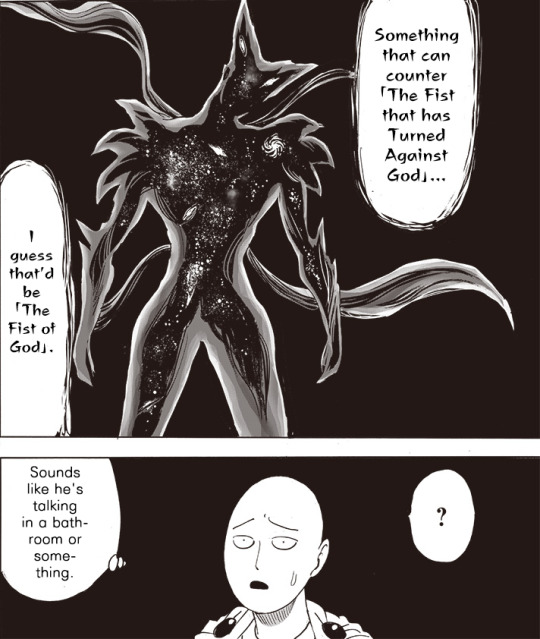
The "talking in bathroom"-comment references to the fact that Garou's sound is actually echoing all around Saitama and he perceives it, because God is still present in the scene and close quarters (yea so basically a giant monster man is right above Sai on this scene lol). Bathroom echo occurs because textures used inside the bathroom cause different kinds of sound vibrations as they bounce back in enclosed space as they do not absorb sound as well as soft materials usually found in living room.
This subliminal skillset in perception is also probably the cause for Saitama's sensitivity for loud sounds, misophonia, which causes him to get pissed off at certain stimuli. So chances are it's really, really annoying when someone is plabbing their mouth off endlessly if he can actually perceive whispers in spiritual realms. I mean you Genos, but hey, he learned well. 20 words or less and no loud noises around Saitama. Else he will get pissed off and smite you with his divine power supernova lmao.
Preconscious:
The preconscious can also refer to information available for cognitive processing but that currently lies outside conscious awareness. One of the most common forms of preconscious processing is priming. Other common forms of preconscious processing are tip of the tongue phenomena and blindsight.
Blindsight is the ability of people who are cortically blind due to lesions in their striate cortex, also known as the primary visual cortex or V1, to respond to visual stimuli that they do not consciously see.
An addition to the subliminal perception and I doubt it means that Saitama is actually blind even if he has the "eyes of a dead fish".
Tip of the tongue is funnily represented when Saitama always forgets Sonic's name and other names.
Priming is a phenomenon whereby exposure to one stimulus influences a response to a subsequent stimulus, without conscious guidance or intention.The priming effect refers to the positive or negative effect of a rapidly presented stimulus (priming stimulus) on the processing of a second stimulus (target stimulus) that appears shortly after.
Processing speed essentially. All those reflexes and reaction speed ain't much if you can't process what is happening.
Special mention:
Genos core becoming unbreakable needs to be noted, as it seems that only Saitama's belief in that it will not break is stopping it from breaking as he imbues it with power. This can be either seen as combination of multiple sets of skillsets, like willpower or desire.
Divine Power and the Cosmic Origin:

His divine power, the cosmic power that he uses as fuel for emotional responses seems to be Sunlight or Solar energy, as the sun is being used to depict the explosion of the extreme Serious Punch squared effect.
Supporting argument of Carnage Kabuto fight and how Carnage Kabuto saw into the UV light spectrum
Sunlight is a portion of the electromagnetic radiation given off by the Sun, in particular infrared, visible, and ultraviolet light. On Earth, sunlight is scattered and filtered through Earth's atmosphere, and is obvious as daylight when the Sun is above the horizon. When direct solar radiation is not blocked by clouds, it is experienced as sunshine, a combination of bright light and radiant heat. When blocked by clouds or reflected off other objects, sunlight is diffused. Sources estimate a global average of between 164 watts to 340 watts per square meter over a 24-hour day; this figure is estimated by NASA to be about a quarter of Earth's average total solar irradiance.
The ultraviolet radiation in sunlight has both positive and negative health effects, as it is both a requisite for vitamin D3 synthesis and a mutagen.
Ultraviolet A or (UVA) spans 315 to 400 nm. This band was once[when?] held to be less damaging to DNA, and hence is used in cosmetic artificial sun tanning (tanning booths and tanning beds) and PUVA therapy for psoriasis. However, UVA is now known to cause significant damage to DNA via indirect routes (formation of free radicals and reactive oxygen species), and can cause cancer.
Visible range or light spans 380 to 700 nm. As the name suggests, this range is visible to the naked eye. It is also the strongest output range of the Sun's total irradiance spectrum.
The existence of nearly all life on Earth is fueled by light from the Sun. Most autotrophs, such as plants, use the energy of sunlight, combined with carbon dioxide and water, to produce simple sugars—a process known as photosynthesis. These sugars are then used as building-blocks and in other synthetic pathways that allow the organism to grow.
Heterotrophs, such as animals, use light from the Sun indirectly by consuming the products of autotrophs, either by consuming autotrophs, by consuming their products, or by consuming other heterotrophs. The sugars and other molecular components produced by the autotrophs are then broken down, releasing stored solar energy, and giving the heterotroph the energy required for survival. This process is known as cellular respiration.
His gloves steam when he starts to collect the energy for a good punch as it gives off radiant heat. Quite many times his bald head is used as reflective surface to reflect light sources like the sun, the intro to OPM season 1 has his glove catch into flames and burst into white bright light. Just like sunlight, most of the spectrum is not visible to naked eye whenever he punches people, unless it's the strongest output of his power, the death punch where it's emotionally charged punch. Destructive use of his divine power in emotional expulsion causes harm to DNA, so basically his punch atomizes people. Makes sense as that seems to be accurate depiction of what happens to those he punches, they just vaporize.
Actually, this means that Boros clung to life against his Serious Punch because he can regenerate. Huh. Maybe Boros is actually truly alive and Boris, Blasts's teammate, is Boros. (Love that fandom name).
Solar eclipse is used for symbolism when Garou is being influenced by God, as god is symbolised by the moon and Saitama symbolises the sun and we've also had couple covers with moonlight reflecting off Saitama's bald head and Saitama standing atop the solar corona. Solar eclipses are treated as ill omen in myth and and full eclipse only happens when moon is totally aligned with the sun and when moon is closest to the plane of earth's orbit and obstructs the sunlight from reaching earth.
This has some... very worrisome connotations with the parallels between God and Saitama and what God's goal with his machinations truly is.
And the last but not the least important bit, sunlight is a fuel for nearly all life on earth.
Combine divine power with his extreme emotional discharge, desires, reality bending and common sense breaking abilities and you can get...
Yea, exactly. :D
But it will be an unconscious manifestation of his skillset, so he won't know what the hell happened.
The ideal self:
Psychologists Carl Rogers and Abraham Maslow had major influence in popularizing the idea of self-concept in the west. According to Rogers, everyone strives to reach an "ideal self." He believed that a person gets to self-actualize when they prove to themself that they are capable enough to achieve their goals and desires, but in order to attain their fullest potential, the person must have been raised in healthy surroundings which consist of "genuineness, acceptance, and empathy", however, the lack of relationships with people that have healthy personalities will stop the person to grow"like a tree without sunlight and water" and affect the individual's process to accomplish self- actualization.[9] Rogers also hypothesized that psychologically healthy people actively move away from roles created by others' expectations, and instead look within themselves for validation. On the other hand, neurotic people have "self-concepts that do not match their experiences. They are afraid to accept their own experiences as valid, so they distort them, either to protect themselves or to win approval from others."
Self-actualization in this case being attaining his full awakening by having genuine support.
This is the allegory of the Cactus ONE has mentioned before. No matter how much Saitama tries to nurture the Cactus, it will not ever bloom.
As he cannot nurture himself alone to become the Ideal hero without help and he does not know how and keeps doing it wrong.
And letting other heroes prove themselves so they too, can self-actualize by proving themselves capable of reaching their goals and desires.
Conclusion:
The important bit here is that Saitama never stopped being who he is or that his personality or the aspects of his mind changed. He's still willfull, he still has low self-esteem, he's still just and has other personality quirks and he's still passionate.
Saitama also has normal human physiological needs when he is not in a state that actively defies this logic, such as being detatched from his ID that governs his body's psysiological needs.
But if he wills and imagines or plans something to happen, he can probably do it. It would take more mental energy to expend extreme amounts consistently though, akin to espers.
What he gained from breaking his limits is the potential to manifest the workings of his own psyche into the external world, not unlike Espers who use their mind powers. But his psyche is that of the conscious, preconscious and unconscious variety and behaves with this ruleset, at least for now. Conscious skillsets are used consciously and unconscious skillsets are used unconsciously and he may not be aware of the entire extent of the powers he has on the unconscious scale.
Saitama saying he goes full power because Garou can take a beating means he's going to use his Conscious skillset to beat him down, as he is cognizant of the abilities he possesses but does not often use.
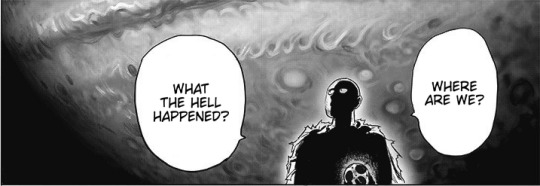
After completely surrendering to his unconcious mind, he has no memory recall of what happened during the high emotional discharge of the death punch. But Saitama is cognizant of emotional discharged punches but only wanted to name it so he'd have some kind of reference point of how much emotions he needs to use as fuel for the destructive attack.
Unclear whether Psyche power and Divine powers being sunlight are all manifestations of divine power in different ways or whether Psyche powers emerged from Ego-death and Divine cosmic powers emerged from the Body death.
Saitama can use his abilities in tandem with his other abilities and there seems to be no interference between ability usage, unless within the extremes as that seems to be the current limit. Synthesis of information.
Killing a mosquito is an exception, rule of funny. He tries to slap the mosquito, but not wanting to feel any pain means he unconsciously may have depowered his own slap from harming himself, thus causing conflict between the rational ego and the impulsive id and letting the mosquito go away. Further conflict makes it more confusing scenario because the mosquito is seemingly now invincible and he stops rationalising it away when he gets pissed.
Slipping into extremely intelligent-cognizant or emotional mindset seems to prohibit using abilities from the other spectrum to their full extent unless said ability is unconsciously always in use.
The stress from using his psyche this much is probably what caused him to go bald in the first place. As Genus has commented, such powers are not without a price and the price he paid for using them was going bald and overwhelming sense of alienation from being way too strong and his powers breaking any sound logic and common sense, and apathy. Using any extreme of his powers seems to cause him to receive negative feedback from expulsion, so it stands for a reason that any extreme usage of logic defying abilities would erode his sanity, while any extreme expulsion of emotional would erode on his feelings and cause apathy and dissociation.

(Zombieman implicating that the power to remove his limiter is literally the same power that blew away Genus whole ideology, which would be true if one of Saitama's powers is to judge the self and cause a shift the ideal ego)
We've yet to see the most extreme version of his common sense and reality bending powers. And if he did, he might have a manic episode and go temporarily crazy in a bout of insanity.
That's why the mind employs defence mechanisms to repress this ability and possibly his memory of said events happening too. At least in my hypothesis.
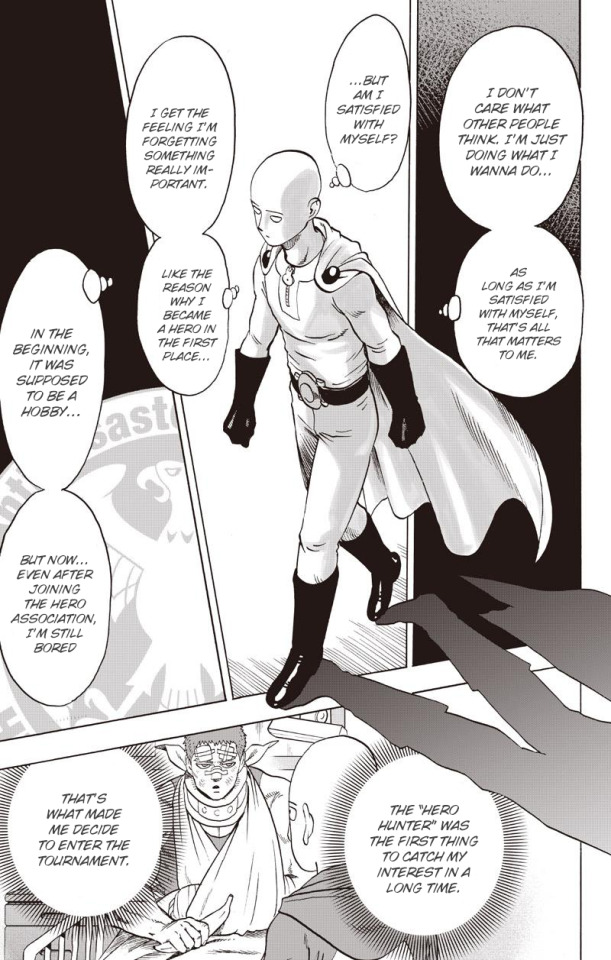
Saitama's hero journey may never be satisfied unless he brings his abilities together and repairs his own psyche. In buddhism there are many references to ascension and gaining enlightenment by attaining higher consciousness, full awakening.
The dangerous part about having separate consciousness is that the longer they are split, it may cause them to distance even further away till the psyche shatters completely into separate consciousnessness and causes mental disturbances. He is already depressed and apathetic.
God as a being who has no identity and no emotions and no morals and no humanity, seems to work on the exact same premises as Saitama (powers of psyche and divine powers), which brings some uncomfortable parallels between God and Saitama into forefront.
God below the earth is unconscious, empty husk and the God above ground in the moon is an active consciousness that crawled from the physical body and only acts in it's own interest in cold rationality, no emotions and no sense of morality. Ergo only Ego, no ID nor Super-ego.
Funnily enough, the God's unconsciousness inside the earth is disrupted whenever God makes a centipede and it is actually called Centipede's dilemma or Humphrey's law. Lmfao.
"The Centipede's Dilemma" is a short poem that has lent its name to a psychological effect called the centipede effect or centipede syndrome. The centipede effect occurs when a normally automatic or unconscious activity is disrupted by consciousness of it or reflection on it. For example, a golfer thinking too closely about their swing or someone thinking too much about how they knot their tie may find their performance of the task impaired. The effect is also known as hyperreflection or Humphrey's law.
As God's unconscious form automatically crafts monsters, the active craft of a centipede disrupts this automatic process, like when happened when Orochi crawled to the altar and got sacrificed.
This may mean that God's unconscious form is awakening more and more. Every time something is sacrificed on the altar.
If god is a limitless being who also experienced ego death and physical death, then there is very likely chance that if Saitama continues like this, his consciousness would separate entirely like God's seems to have.
That the God also happens to be bald, but still has ears, has human form, lacks humanity, has similar powers but on a larger scale and the sun and moon parallels...
Power imbuing is also exactly what Saitama is doing to Genos core on chapter 167.
God is attempting hard to remove Saitama's identity, his emotions and his humanity purely on goal-oriented basis and that does not bode well.
Other notes:
The basic tenets of psychoanalysis include:
A person's development is determined by often forgotten events in early childhood, rather than by inherited traits alone.
Human behaviour and cognition are largely determined by instinctual drives that are rooted in the unconscious.
Attempts to bring such drives into awareness triggers resistance in the form of defense mechanisms, particularly repression.
Conflicts between conscious and unconscious material can result in mental disturbances, such as neurosis, neurotic traits, anxiety, and depression.
Unconscious material can be found in dreams and unintentional acts, including mannerisms and slips of the tongue.
Liberation from the effects of the unconscious is achieved by bringing this material into the conscious mind through therapeutic intervention.
The "centerpiece of the psychoanalytic process" is the transference, whereby patients relive their infantile conflicts by projecting onto the analyst feelings of love, dependence and anger.
Therapeutic intervention meaning bringing repressed feelings to the surface as counterbalance to the emotional discharges that eat away at his emotions, feeling without constant discharges. And possibly actual mind therapy from espers. Reconcilation of the two split consciousness into harmonious unity.
Serious series: Serious Therapy time.
And that concludes the deconstruction and theory on Saitama's powers and how he applies them.
#opm#one punch man#opm spoilers#opm manga panels#saitama#saitama's powers#opm meta discussion#psyche#ego#id#super-ego#long post#text#sigmund freud#psychology#psychoanalysis
58 notes
·
View notes
Text
El Stack de Funciones: Introducción
El stack de funciones es un modelo definido y analizado por numerosos psicólogos e investigadores de las funciones cognitivas. Un "stack" o pila es una estructura en la cual los objetos son utilizados según su posición.
Usualmente se habla de este modelo únicamente en la parte consciente, es decir, las primeras cuatro funciones aunque también se tienen otras cuatro que introducen a la parte inconsciente o sombra. Esto confirma el hecho de que todas las personas usan las 8 funciones cognitivas pero el modelo permite conocer la manera en que son utilizadas para cada uno de los 16 tipos.
Es necesario observar dos dicotomías que permiten conocer dos de las caracteristicas principales de cada posición en el stack. Estás dicotomías son:
Valor: Valorada vs No valorada
Desarrollo: Fuerte vs Débil
Funciones Valoradas
Se trata de funciones que se encuentran en el núcleo de la identidad de una persona, normalmente son más valoradas entre personas que comparten dichas funciones y se aprecian más los resultados de su uso que el proceso.
Funciones No Valoradas
Estas funciones se encuentran en la parte inconsciente de la persona, se les conoce como la sombra y usualmente está fuera de contacto y obstruyen la identidad aunque pueden ser integradas.
Funciones Fuertes
Las funciones fuertes son las que tienen un mayor desarrollo o las que son más fáciles de desarrollar para el usuario porque son más fáciles de entender, también pueden ser usadas para ayudar a otros y para entender su forma de pensamiento, además son una fuente de fortaleza.
Funciones Débiles
Son las funciones menos desarrolladas o son difíciles de desarrollar, son incómodas y entorpecen al usuario cuando intenta usarlas. Suelen aparentar ser inmaduras o insanas debido al poco desarrollo, aunque pueden ser desarrolladas y solo pueden servir para ayudar a las funciones fuertes.
Bloques de Funciones
Definiendo estas dos dicotomías características de las funciones cognitivas en el stack, se definen también cuatro bloques en el stack, al cual pertenecen dos pares de funciones en cada uno dependiendo del tipo y así atribuirle las dos dicotomías anteriormente explicadas a cada función. Los cuatro bloques son: Ego, Subconsciente, Inconsistente y Super-Ego.
Ego: Valorado y Fuerte
Las funciones del ego son valoradas y fuertes, esto quiere decir que están en la plenitud de su desarrollo y funcionan casi de manera automática y visible, estas dos funciones pueden definir el comportamiento más habitual de una persona. Es el núcleo de la personalidad y el más confiable, además cuando son usadas, se puede obtener aún más energía.
Subconsciente: Valorado y Débil
El bloque subconsciente contiene las funciones complementarias del ego en orden inverso, debido a esto son debiles porque las que fueron desalloradas con facilidad fueron las del ego, pero como complementan dichas funciones, son valoradas y buscan ser solventadas a veces fuera de la persona, a menudo con otras personas.
Inconsciente: No Valorado y Fuerte
Este bloque contiene las funciones contrarias a las del ego, las cuales tienen un desarrollo considerable pero se usan detrás, se ignoran o están bloqueadas debido a la preferencia por el bloque ego. Esto ocasiona apatía o neutralidad en esas funciones pero se pueden utilizar forzando o "consientizando" su uso.
Super-Ego: No Valorado y Débil
Es el bloque cuyas funciones son opuestas a las del bloque subconsciente, y con las que el usuario está casi totalmente fuera de contacto pero se pueden forzar para usarse conscientemente aunque es poco confiable para el usuario y pueden sentirse poco genuinas. Además el usuario suele proyectarlas hacia otras personas cuando las critica.
Así el stack de funciones puede verse de la siguiente manera con cada función al bloque que pertenece y asociando cada una a un arquetipo. En la segunda parte de este post se describirá con más detalle cada función.
Bloques Conscientes
Bloque Ego: Valorado y Fuerte
Dominante: Héroe
Auxiliar: Padre
Bloque Subconsciente: Valorado y Débil
Terciaria: Niño eterno
Inferior: Anima/Animus
Bloques Sombra
Bloque Inconsciente: No Valorado y Fuerte
Quinta función: Opositor
Sexta función: Senex/Witch (Viejo/Bruja)
Bloque Super-Ego: No Valorado y Débil
Septima función: Embaucador (Trickster)
Octava función: Demonio (Demon)
#cognitive functions#mbti#funciones cognitivas#funciones sombra#shadow functions#ego#subconsciente#inconsciente#super-ego
6 notes
·
View notes
Text

«El super-yo de una época cultural determinada tiene un origen análogo al del super-yo individual, pues se funda en la impresión que han dejado los grandes personajes conductores, los hombres de abrumadora fuerza espiritual o aquellos en los cuales alguna de las aspiraciones humanas básicas llegó a expresarse con máxima energía y pureza, aunque, quizá por eso mismo, muy unilateralmente. En muchos casos la analogía llega aún más lejos, pues con regular frecuencia, aunque no siempre, esos personajes han sido denigrados, maltratados o aun despiadadamente eliminados por sus semejantes, suerte similar a la del protopadre, que sólo mucho tiempo después de su violenta muerte asciende a la categoría de divinidad. La figura de Jesucristo es, precisamente, el ejemplo más cabal de semejante doble destino, siempre que no sea por ventura una creación mitológica surgida bajo el oscuro recuerdo de aquel homicidio primitivo.»
Sigmund Freud: El malestar en la cultura y otros ensayos. Alianza Editorial, pág. 146. Madrid, 2010
TGO
@bocadosdefilosofia
@dias-de-la-ira-1
#freud#sigmund freud#el malestar en la cultura#super-yo#superyó#super-ego#super-yo individual#super-yo cultural#protopadre#jesús#jeucristo#homicidio#homicidio primitivo#divinidad#psicoanálisis#psicoanálisis de la cultura#psicología social#psicología#aspiraciones humanas#ideal#ideales#moral#ética#origen de la moral#teo gómez otero
1 note
·
View note
Text
New story today: "Don't Let People Live Rent-Free in Your Head"
#the skewed life#humor#humour#comedy#ego#super-ego#id#stress#don't let people live rent-free in your head#reliving the day
0 notes
Text
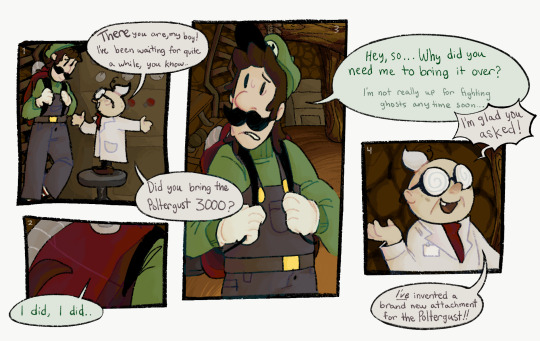
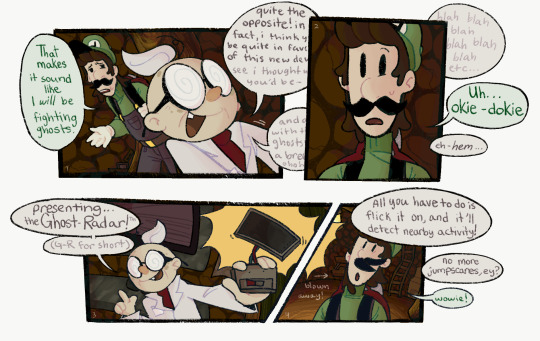
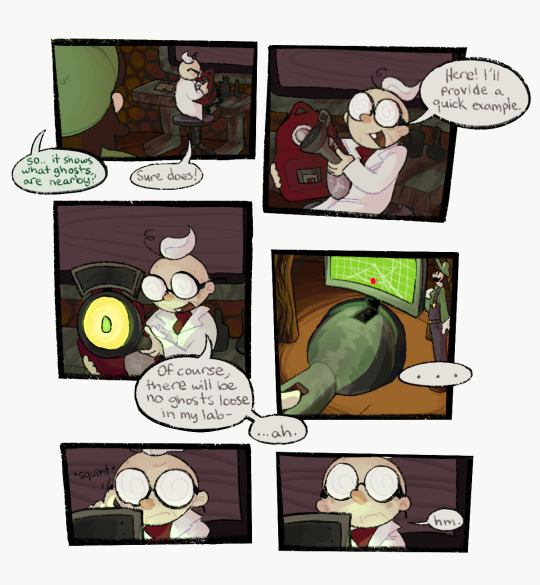

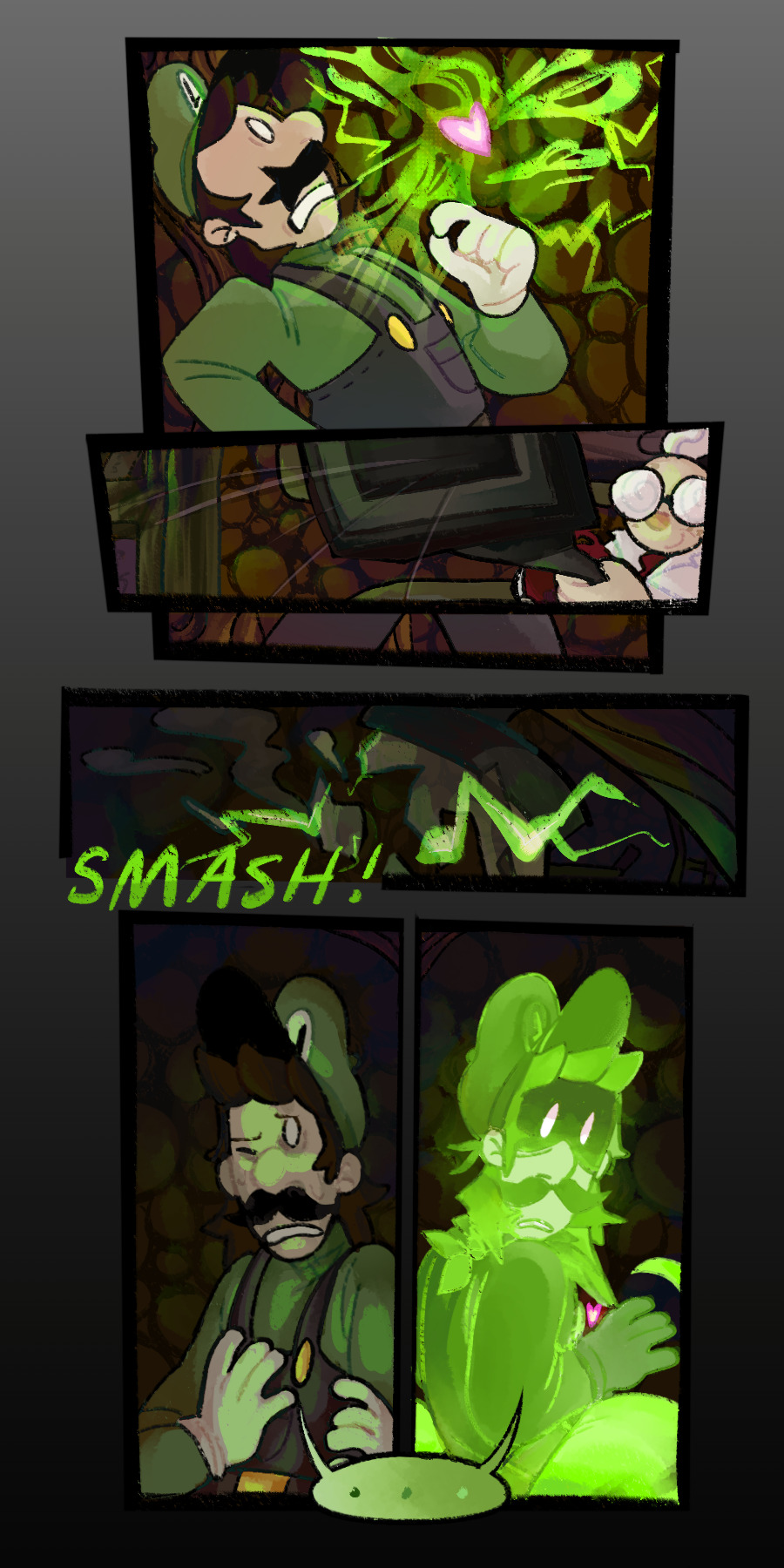
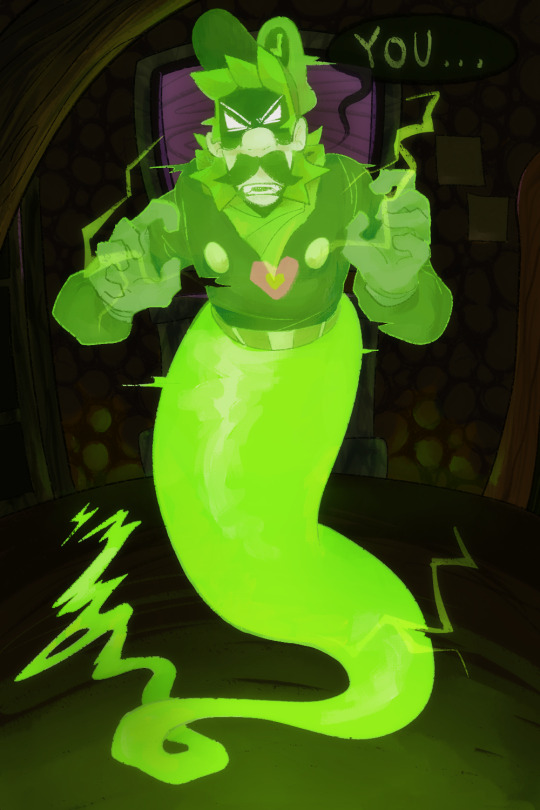
| Next
1-6
#calling this bad boy#extra life au#cuz. get it cuz. alter ego thing. extra life. death.#shorter updates from now on but#imso excited to have this out finally RAGHH#u get it#///#super paper mario#luigis mansion#spm#mr l spm#spm mr l#luigi#spm luigi#e gadd#spm extra life#spm extra life au#mr l fanart#my art#ohmaerieme#super paper mario spoilers#spm spoilers
1K notes
·
View notes
Text
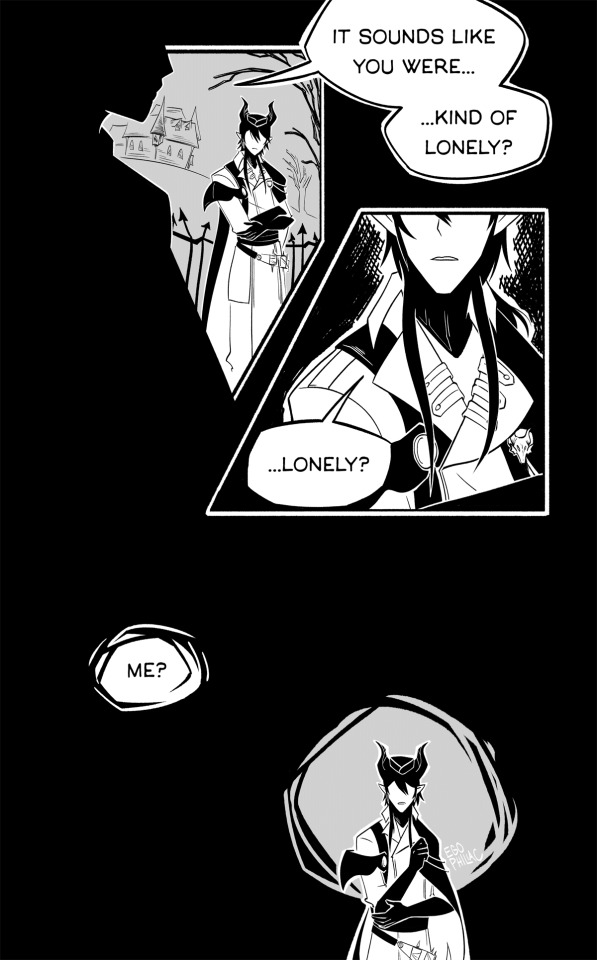

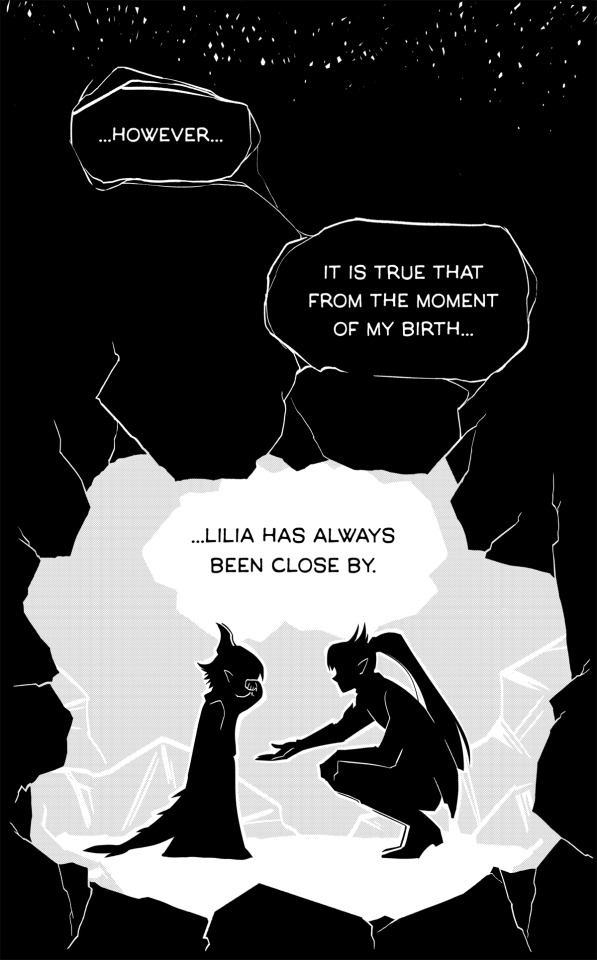
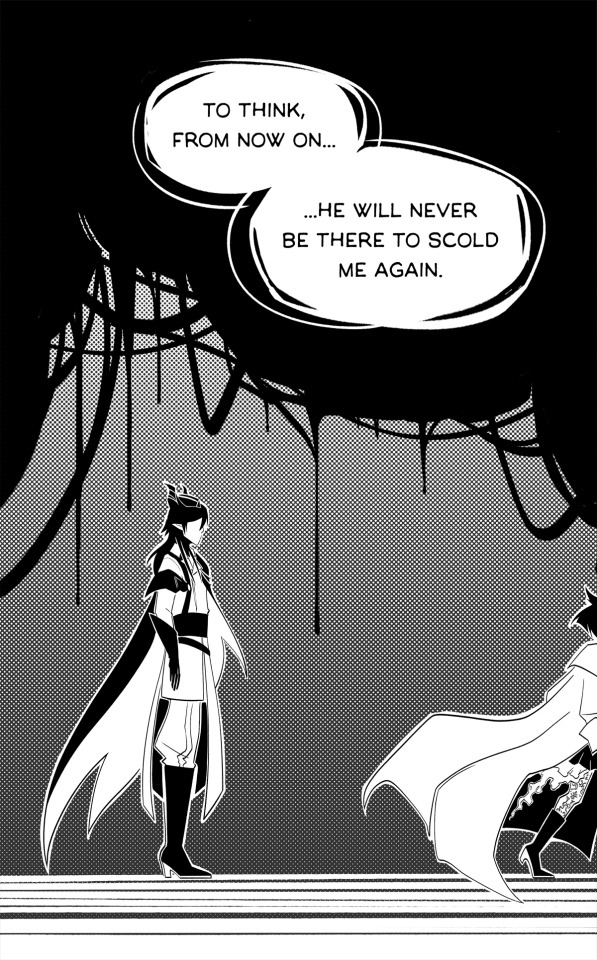
no punchline this time, just wanted to try some new techniques, and I liked this bit of dialogue from the first part of episode 7! what is composition
...okay, look, I warned you I was going to be super annoying about diasomnia--
#art#twisted wonderland#twisted wonderland spoilers#twisted wonderland episode 7 spoilers#twisted wonderland book 7 spoilers#'ego no you can't just draw a bunch of ink drips and call it fanart'#oh yeah WATCH ME#god i hope this doesn't resize super bad#please tumblr don't punish me for wanting to try screentones#(not me surreptitiously editing because i FORGOT HOW TO DRAW HIS HAIR)#(WHY AM I LIKE THIS)
6K notes
·
View notes
Text
Some more advice for fellow adults: set your ego aside and let younger people (even kids!) educate and teach you. There is no shame in looking to a younger person for education and knowledge. It is, actually, a big facet of humanity that we teach each other - why, then, does that teacher need to be the Right Age in order for you to be willing to learn from them?
#youth liberation#adultism#i'm looking to a younger person to teach me about crochet and it's actually FINE#it's actually not an attack on Your Ego that a young person is more knowledgeable about something or possesses a talent at a level you dont!#and personally i like learning from younger people because they tend to be kind and PASSIONATE about what they are talented at!#like the young person i'm learning crochet from has this super bubbly and energetic personality and that's MOTIVATING me#and it feels less like they're just dictating crochet at me and more like we're equals sharing a passion and a craft#and THAT is what makes people want to learn. THAT is what will keep people engaged and motivated even when it gets tough#frankly it's just... kind of a red flag to me when somebody devalues younger people SO MUCH that they REFUSE to listen or learn from them#it's just... arrogance and cruelty for the sake of cruelty in my eyes
786 notes
·
View notes
Text
Here is why lawlight's chemistry works- L always has to be right and Light always has to be special / the best. L thinks Light is special / the best and Light thinks L is always right for thinking he's special / the best. Rinse and repeat for all eternity while everybody else is just being like omg get a room
#they both stroke each others egos just in slightly different ways#but in the main ways that are like super addicting for them both#ALSO L pays tons of attention to light so he can find new things to be right about with light and lights just like hell yes#L is paying attention to ME#u know what im sayin?#light yagami#l lawliet#lawlight#p
278 notes
·
View notes
Text
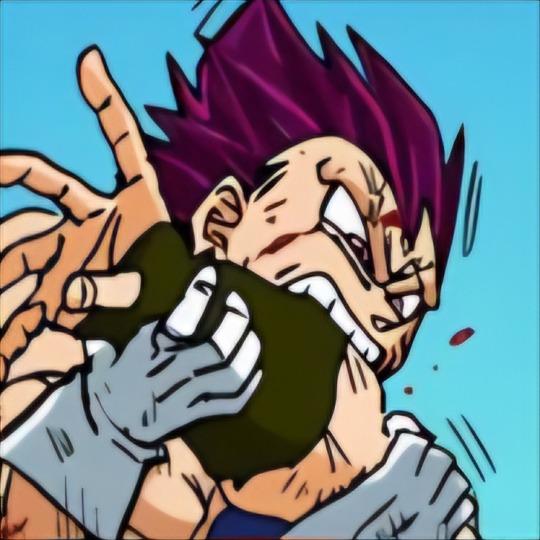
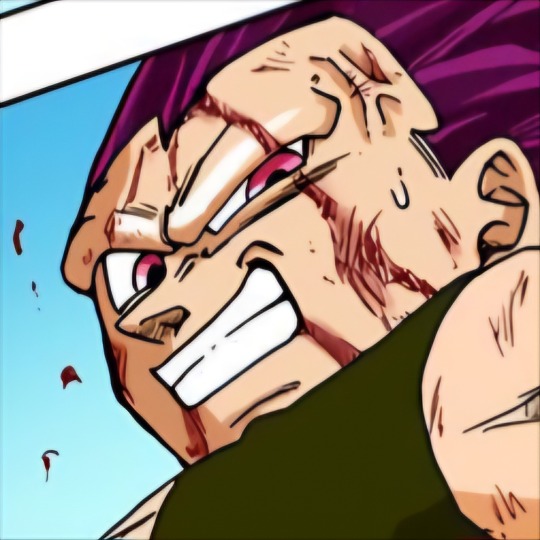
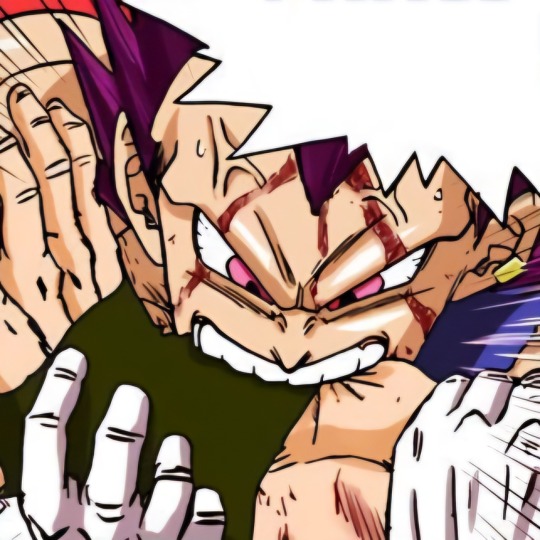
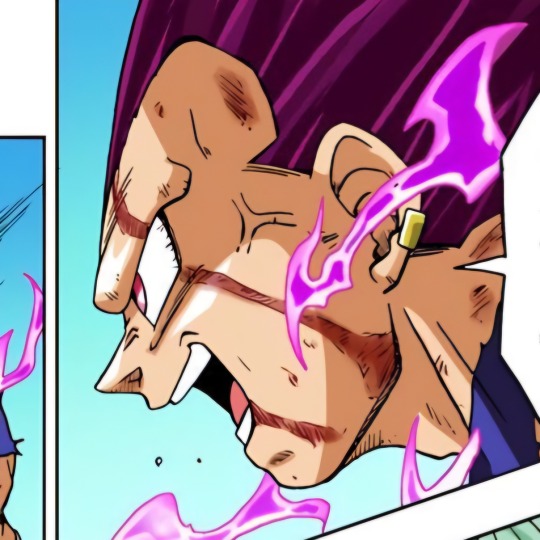
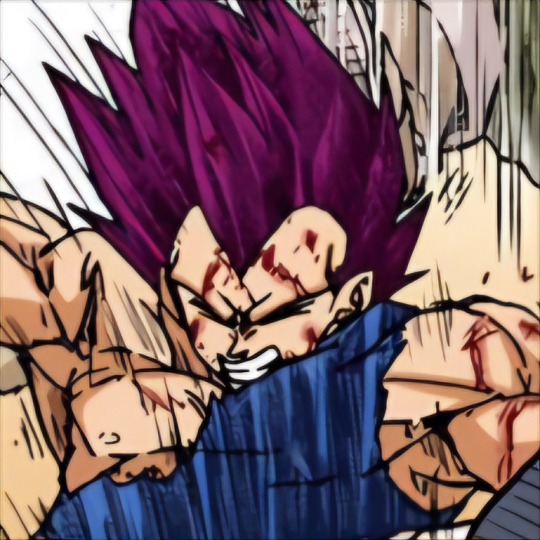
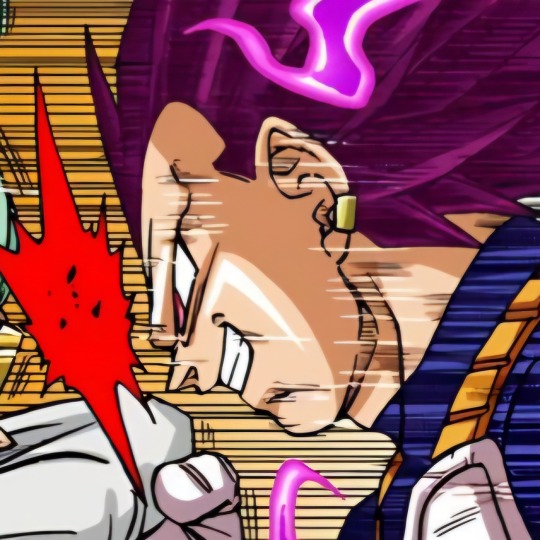
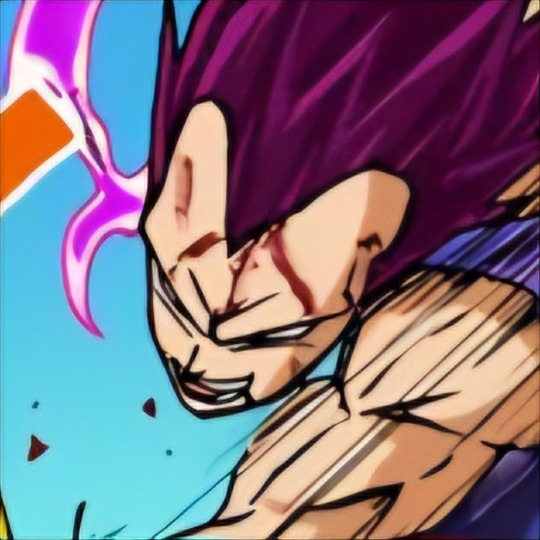

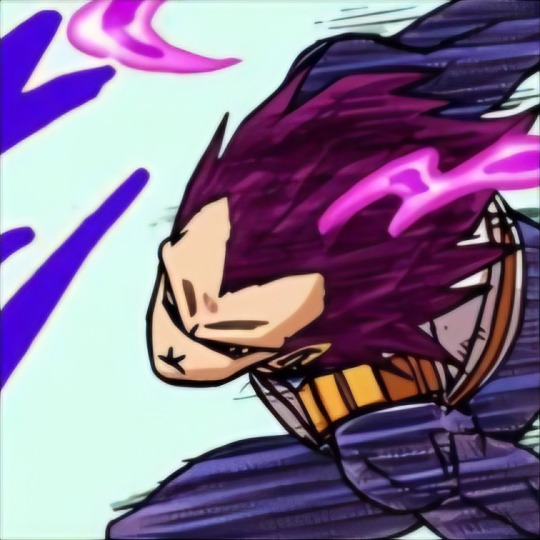
Vegeta Ultra Ego, Granolah Arc
#icons#manga#dragon ball#anime#akira toriyama#dragon ball z#dragon ball super#colored#pfp#vegeta#vegeta ultra ego#ultra ego#shounen#granolah
139 notes
·
View notes
Text
Saitama’s power deconstruction part 1:
Psyche and Divine powers
The Ego, The ID and the Super-ego
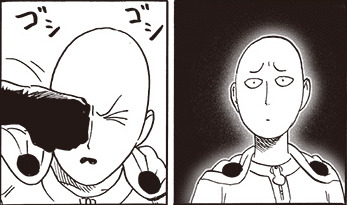
I know right? How is this even related to massive strenght? The planet busting powers and being impervious?
Buckle up and I will try my best to explain this wild theory I stumbled upon while doing research into how buddhism relates to OPM and then doing some leaps of logic and other stuff. I've no degree in psychology so bear with me on this, I just like doing analysis.
Again, lots of wikipedia abuse and you may want to read some of my previous posts as they relate to the research I've been doing on discord.
Does god reside in Saitama?
Saitama's hero suit
How saitama's power manifests
Warning, this is an extremely long post of both theory, OPM meta, speculation and lots of wikipedia abuse.
Preface, explaining the leaps of logic:
At first, I simply researched ways how would a willpower use manifest when he uses his emotions to seemingly fuel a Serious punch and how said fuel is then expended in stress relief, which I have explained on how Saitama's powers potentially manifest as emotional release.
In current chapter 167, we're seeing a lot of showcase about things that break laws of physics and break common sense. But he's completely dissocating as well and he's not actually punching with energy release. His punches are completely different from how he threw his planet busting punch. And seemingly weaker too.
I was also researching how to break one's limiter and realised that OPM God has no identity at all, because he is faceless and at the same time, multifaceted and takes on other identities.
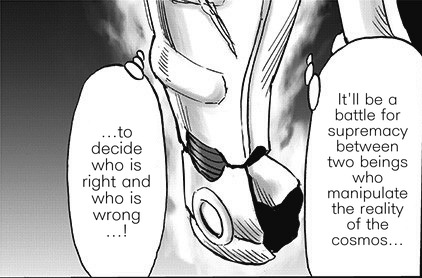
When Blast said that beings who manipulate the reality of the cosmos and that we got confirmation that Saitama's powers are of divine origin, I immediately thought about reality manipulation. But that would not explain the bursts of emotional discharges.
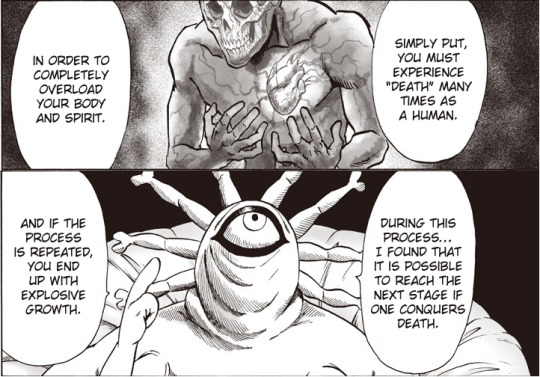
If we believe Gyoro, one has to overload the body and spirit, multiple times.
According to Ventegodt and Merrick, the Jungian term "psychic death" is a synonym for "ego death":In order to radically improve global quality of life, it seems necessary to have a fundamental transformation of the psyche. Such a shift in personality has been labeled an "ego death" in Buddhism or a psychic death by Jung, because it implies a shift back to the existential position of the natural self, i.e., living the true purpose of life. The problem of healing and improving the global quality of life seems strongly connected to the unpleasantness of the ego-death experience.
In Jungian psychology, a unification of archetypal opposites has to be reached, during a process of conscious suffering, in which consciousness "dies" and resurrects. Jung called this process "the transcendent function", which leads to a "more inclusive and synthetic consciousness".
Ego death is a "complete loss of subjective self-identity". The term is used in various intertwined contexts, with related meanings. Jungian psychology uses the synonymous term psychic death, referring to a fundamental transformation of the psyche. In death and rebirth mythology, ego death is a phase of self-surrender and transition, as described by Joseph Campbell in his research on the mythology of the Hero's Journey.It is a recurrent theme in world mythology and is also used as a metaphor in some strands of contemporary western thinking.
A fundamental transformation of the psyche. Hm.
So what is psyche?
In psychology, the psyche /ˈsaɪki/ is the totality of the human mind, conscious and unconscious.[1] Many thinkers, including Carl Jung, also include in this definition the overlap and tension between the personal and the collective elements in man.
The English word soul is sometimes used synonymously, especially in older texts.
(Haha funny, that OPM writer also writes Mob Psycho haha)
So human mind, conscious and unconscious.
Human mind is probably Saitama's insane willpower. The non-defeatist attitude of his. Never accept defeat, never quit. But I legit haven't thought about the human mind relation with his powers. It may be normal and intact.
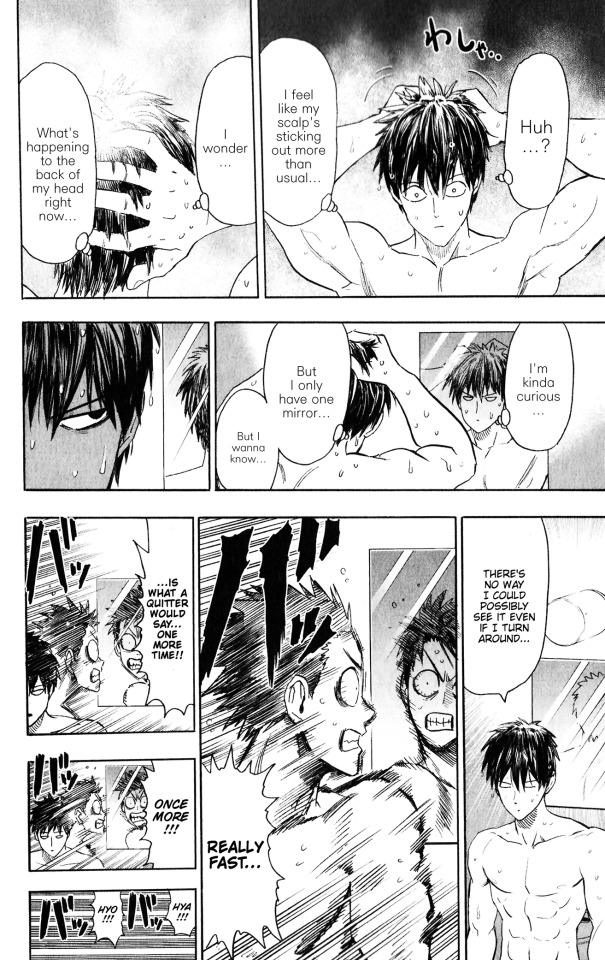
But we already know this don't we? What about the rest?
(also this scene is so frikken funny to me lmao)
Sigmund Freud, the father of psychoanalysis, believed that the psyche—he used the word Seele ('soul', but also 'psyche') throughout his writings—was composed of three components:
The id, which represents the instinctual drives of an individual and remains largely unconscious. It does not respect the rules of society.
The super-ego, which represents a person's conscience and their internalization of societal norms and morality.
The ego, which is conscious and serves to integrate the drives of the id with the prohibitions of the super-ego. Freud believed this conflict to be at the heart of neurosis.
Now we've hit the meaty part of it. Saitama's divine powers and how he can control the conscious and unconscious mind. Supposedly.
The Ego, The ID and the Super-ego:
The id, ego, and super-ego are a set of three concepts in psychoanalytic theory describing distinct, interacting agents in the psychic apparatus (defined in Sigmund Freud's structural model of the psyche). The three agents are theoretical constructs that describe the activities and interactions of the mental life of a person. In the ego psychology model of the psyche, the id is the set of uncoordinated instinctual desires; the super-ego plays the critical and moralizing role; and the ego is the organized, realistic agent that mediates between the instinctual desires of the id and the critical super-ego.
ID:
The id is the instinctual component of personality that is present at birth, and is the source of bodily needs and wants, emotional impulses and desires, especially aggression and the libido (sex drive). The id acts according to the pleasure principle — the psychic force oriented to immediate gratification of impulse and desire — defined by the avoidance of pain. Freud said that the Id is unconscious, by definition.
The mind of a newborn child is regarded as completely "id-ridden", in the sense that it is a mass of instinctive drives and impulses, and needs immediate satisfaction. The "id" moves on to what organism needs. Example is reduction of tension which is experienced.
The id "knows no judgements of value: no good and evil, no morality. …Instinctual cathexes seeking discharge—that, in our view, is all there is in the id." It is regarded as "the great reservoir of libido", the instinctive drive to create—the life instincts that are crucial to pleasurable survival. Alongside the life instincts came the death instincts—the death drive which Freud articulated relatively late in his career in "the hypothesis of a death instinct, the task of which is to lead organic life back into the inanimate state." For Freud, "the death instinct would thus seem to express itself—though probably only in part—as an instinct of destruction directed against the external world and other organisms" through aggression. Freud considered that "the id, the whole person…originally includes all the instinctual impulses…the destructive instinct as well", as eros or the life instincts.
If those bolded parts sound familiar, they should. Avoidance of pain because Saitama doesn't seem to feel any real pain even if he gets hit.
Source of bodily needs and wants, because Saitama is so detatched from his emotions right now, he has no physiological needs. Despite acknowledging gravity when he jumped around the moon, now he gives two shits about gravity, air, temperature or anything.
Bodily wants because he can do whatever he wants to apparently with his body, like Table flip and jump at high speeds and everything he wills himself to do. Just general body enhancement ability so he can do Serious side hops. And lastly...
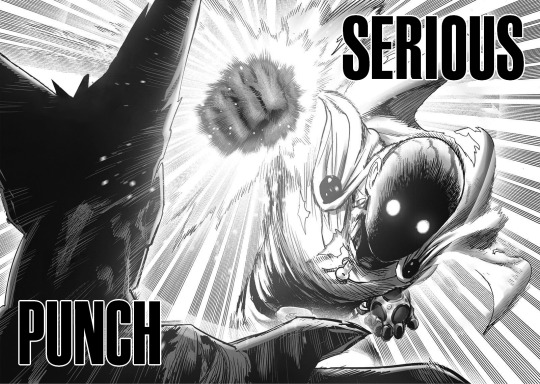
Serious series, Serious Punch.
The "Death" punch.
"Instinct of destruction directed against the external world through aggression."
A very emotionally loaded aggressive Punch. That more than likely causes emotional catharsis via expulsion of emotional energy. Either via transference or cathexis.
Note that the ID is according to Freud, unconscious by definition. So in some levels, Saitama is not aware of the extremes of his Death punch when it's this emotionally loaded. Such as him feeling suddenly relaxed after unloading stress at Elder Centipede. Or when he's using his divine powers to load it with emotional energy, specifically. Because he is not thinking rationally anymore at this extreme level, it's all emotions, instincts where his higher cognitive thought processes get thrown out of the window. Head empty, just feeling the hot cognitive release of emotion.
Serious Punch is one thing. He's pounding Garou with Serious punches.
But they are without any emotion to discharge. The higher the emotion, the bigger the discharge. That makes them different. Makes sense. This is from the writer of Mob Psycho after all.
Normal punch is normal levels of aggressive emotion(nal damage). Serious Punch is serious levels of aggressive emotion, he feels like he needs to punch to kill. Death Punch is... more extreme levels of aggressive emotional discharge.
(I can't I'm just laughing at the Emotional Damage joke now xd)
Genos did ask for him to take him seriously and show him no mercy and not hold back... Well, he didn't hold back, Genos got a taste of Saitama's divine powers kekw.
Be careful what you wish for lmao. He didn't die, so that's something.
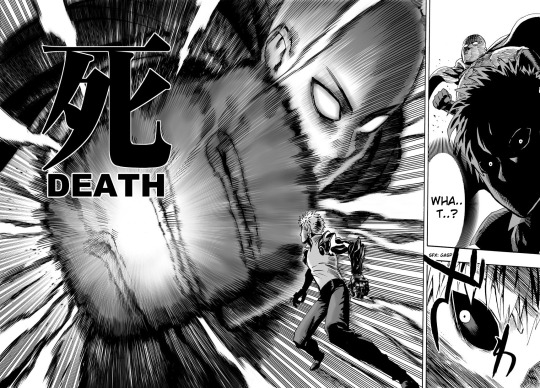
But if Saitama has been doing hero work for 3 years and punching people, if he constantly discharges his emotional energy like this, does that mean it is the reason why he's been feeling his emotions waning?
Possibly. Likely. Might be related to the other parts of his powers. But if he experiences emotions and does not discharge them in anger or in other ways (hmmm? other ways?), he might be able to gain a sense of his waning emotions back. At least I hypothesise.
King is playing a very dangerous Game when he made Saitama pissed lmao. He's lucky Saitama moderates himself extremely well too and went out to punch a Centipede to literally vent. But then again, King is a true gamer.
Onto the other part of his power. The one which we saw him use in latest chapter 167.
Ego:
The ego (Latin for "I",[20] German: Ich)[21] acts according to the reality principle; i.e., it seeks to please the id's drive in realistic ways that, in the long term, bring benefit, rather than grief.[22] At the same time, Freud concedes that as the ego "attempts to mediate between id and reality, it is often obliged to cloak the (unconscious) commands of the id with its own preconscious rationalizations, to conceal the id's conflicts with reality, to profess…to be taking notice of reality even when the id has remained rigid and unyielding."[23] The reality principle that operates the ego is a regulating mechanism that enables the individual to delay gratifying immediate needs and function effectively in the real world. An example would be to resist the urge to grab other people's belongings, but instead to purchase those items.
The ego is the organized part of the personality structure that includes defensive, perceptual, intellectual-cognitive, and executive functions. Conscious awareness resides in the ego, although not all of the operations of the ego are conscious. Originally, Freud used the word ego to mean a sense of self, but later revised it to mean a set of psychic functions such as judgment, tolerance, reality testing, control, planning, defense, synthesis of information, intellectual functioning, and memory.[25] The ego separates out what is real. It helps us to organize our thoughts and make sense of them and the world around us.[25] "The ego is that part of the id which has been modified by the direct influence of the external world. …The ego represents what may be called reason and common sense, in contrast to the id, which contains the passions…in its relation to the id it is like a tug of war, which the ego has to hold in check the id to not let it loose; with the difference, that the teams fought against one other in equality, while the ego was against the much stronger 'id'.
In Freudian psychology and psychoanalysis, the reality principle (German: Realitätsprinzip)[1] is the ability of the mind to assess the reality of the external world, and to act upon it accordingly,[2] as opposed to acting on the pleasure principle.
Allowing the individual to defer (put off) instant gratification, the reality principle is the governing principle of the actions taken by the ego, after its slow development from a "pleasure-ego" into a "reality-ego":[3] it may be compared to the triumph of reason over passion, head over heart, rational over emotional mind, human values over animal instinct.
What we can glean from this is a set of psychic functions and that Ego represents reason and common sense. Common sense that Saitama is also currently breaking.
Judgment
Tolerance
Reality testing
Control
Planning
Defense
Synthesis of information
Intellectual functioning
Memory
From another source of Ego psychology, we have:
Reality testing
Impulse control
Affect regulation
Judgment
Object relations
Thought processes
Defensive functioning
Synthesis
Yea, honestly sounds about right when you think about it.
Note here, that ID aka those governing emotions, instincts and bodily functions are on the unconscious level.
While Ego functions are done mostly on the conscious level.
But anything that Saitama does when in an emotional state can be unconscious action, by definition. And everything done while apathetic and not beholden by ID and only driven by the Ego, is a intellectual-cognitive and executive function. But some actions of the ego or id can still be done consciously or subconsciously.
Currently in chapter 167, Saitama is dissociating from his emotions really hard. So he is not overwhelmed by his own feelings about Genos' death. May or may not be unconscious ability that he regulates his emotions. But lack of emotions makes it more difficult for him to connect with his ID. Reality principle is the governing principle of the actions taken by the ego.
So by either forcing himself to not feel (subconscious defence mechanism) or through the massive discharge of emotions just before fighting Garou on I.O or both, the Ego has taken over the fight. The rational, intellectual-cognitive though processes.
Quite literally, as he performs a picture perfect right hook when his form is normally sloppy. He fights methodically, surgically, intelligently with little wasted movement. Even his dialogue choices seem to reflect his utter lack of passion for this battle.
In an Ego versus Ego battle. Where he is going to pound Garou's ego to the ground, figuratively and literally.
If that makes sense.
Now, the powers.
Judgement:
Saitama has a tendency to cast "judgement" on other people, which works as judging their Egoes that can cause a shift in their Ego. It sounds remarkably similar to the concept of "Gaze".
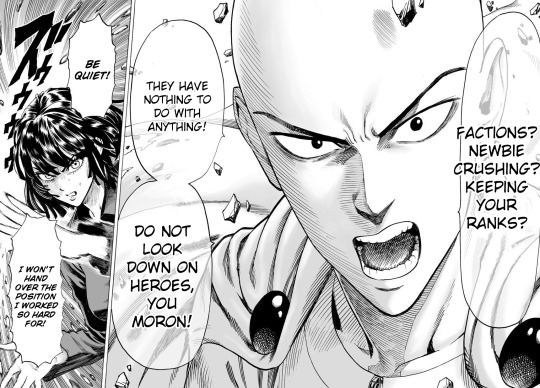
Possibly he can induce the process for the search of the Ideal Ego in self. If he uses his divine power that is, possibly unconsciously via emotions. But it seems to be a battle of Egos, so to speak. Fubuki as Do-S states, has a strong ego herself, so she does not immediately yield. Neither does Garou.
Eye-contact is probably a requirement. Thus the gaze and pressure one can feel when he looks at people and exerts his divine power. Orochi who is another being who has broken their limits at least once, perceives this as The Third Eye. You could say that Saitama has clairvoyance of sorts.
Eyes are the window to your soul, a quote from William Shakespeare. Saitama stares into your soul, the spirit, the ego, the self-concept.
My personal headcanon from now on is that he can never Judge Genos because he cannot truly get eye contact, since he's a cyborg. But Genos on his own, is sincere and honest. He does not need to. Genos will find his ideal ego through normal means.
Tolerance:
Tolerance is a no brainer. He can tolerate just about anything that could kill a normal human being. Lava, space vacuum, freezing, laser beams, lack of air, radiation, you name it.
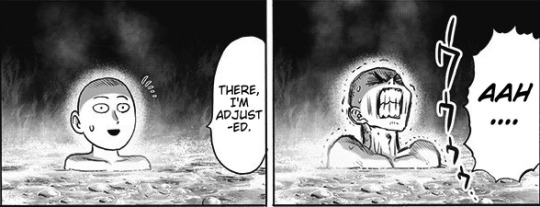
The interesting note here is that he first needed an adjustment period and then sudden sense of relief. Unconscious mind at work again where his body functions adjust themselves. Or something like that.
It is said, however, that the ego seems to be more loyal to the id, preferring to gloss over the finer details of reality to minimize conflicts while pretending to have a regard for reality.
Reality testing:
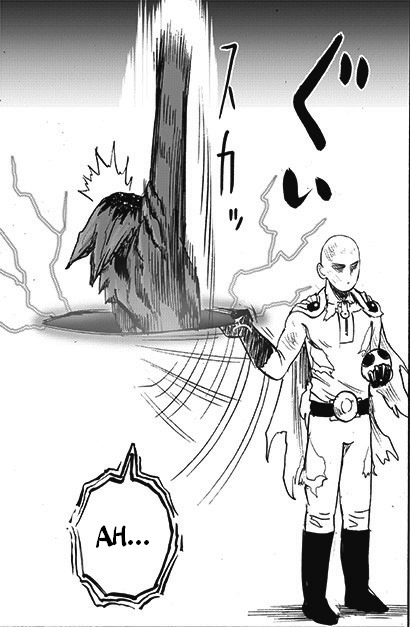
The Ego governs reason and common sense. Therefore, Saitama can break logic and break laws of physics and grab hyperspace portals. And probably also relation to how he can break the moon with 4 fingers. It's all kind of related.
Currently in chapter 167, he's holding Genos core in his hand and imbuing it with his Divine power that test reality itself and break logic. Because it's tanking nukes and survived traveling to Jupiter.
The lack of common sense and rationality, the Ego, on the other hand, allowed him to interact with the spiritual plane, because he was pissed that he thought they were talking about his bald head lmfao.
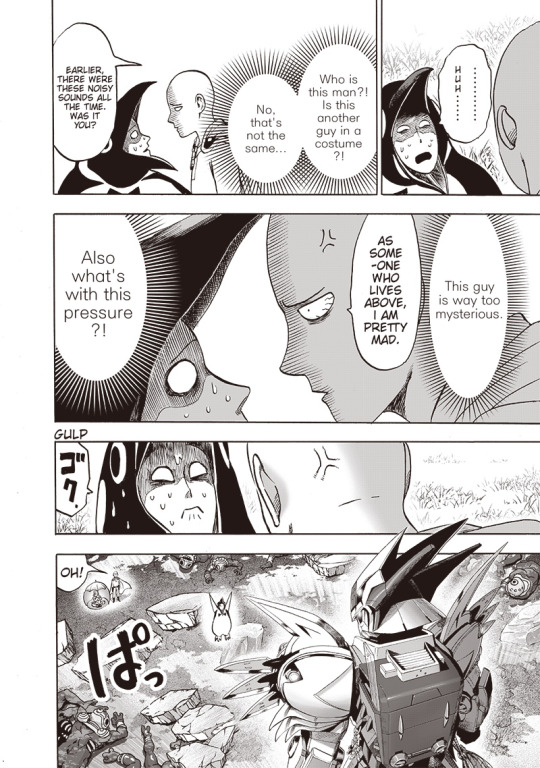
Control:
Yeap, just control. Not much to say about this one, but he controls his impulses and the applications of his power precisely as he wants. Despite his capabilities, he can just as easily smash the planet apart as he can snap chopsticks. Though maybe the tiniest bit of force application proves to be sometimes difficult, as well as humorous.
Control does seemingly slip at times when he gets emotional though. Like when he accidentally breaks King's gaming consoles.
Affect regulation:
The ability to modulate feelings without being overwhelmed. Saitama is normally pretty easygoing and stoic person, then he gets passionate quite often despite saying his emotions are waning. But he may be able to modulate his feelings unconsciously to protect his psyche from damage.
Planning:
Idk is planning hitting grocery store sales a superpower? Lol. But he is apparently planning his actions regularly, like when he surfed on the ship and then thought about jumping towards Garou. And the moon jump back.
Defensive functioning:
A defense is an unconscious attempt to protect the individual from some powerful, identity-threatening feeling. Initial defenses develop in infancy and involve the boundary between the self and the outer world; they are considered primitive defenses and include projection, denial, and splitting.
Not much more to say that Saitama is just impervious. He can take a hit.
Object relations:
The capacity for mutually satisfying relationship. The individual can perceive himself and others as whole objects with three dimensional qualities.
Possibly his ability to perceive others, like how he perceived Awakened Garou and could immediately tell something was off and he could hear the echo of God in the background.
Thought processes:
The ability to have logical, coherent, and abstract thoughts. In stressful situations, thought processes can become disorganized. The presence of chronic or severe problems in conceptual thinking is frequently associated with schizophrenia and manic episodes.
Keep calm, punch monster, move on.
Synthesis of information:
The synthetic function is the ego's capacity to organize and unify other functions within the personality. It enables the individual to think, feel, and act in a coherent manner. It includes the capacity to integrate potentially contradictory experiences, ideas, and feelings.
If one had all these powers, not being able to organize and unify it would get messy. I get it.
Intellectual functioning:
Idk he's still sane? Sounds like a power to me. That he's able to intellectually function despite being god level and doing irrational, logic defying feats. Or when he's chilling on the surface of the moon without seemingly any air.
Memory:
I get a feeling that he has repressed an important memory, like why he became a Hero in the first place that he mentions having forgotten, in an effort to protect his psyche from damage.
Let's face it, nearly dying and having ego-death to break the limit will prolly create some kind of trauma that one represses.
(To be continued on Part 2, the Super-ego and further)
#opm#one punch man#opm spoilers#opm meta discussion#saitama#saitama's powers#psyche#ego#id#super-ego#opm manga panels#long post#text#Sigmund Freud#Psychoanalysis#psychology
47 notes
·
View notes
Text
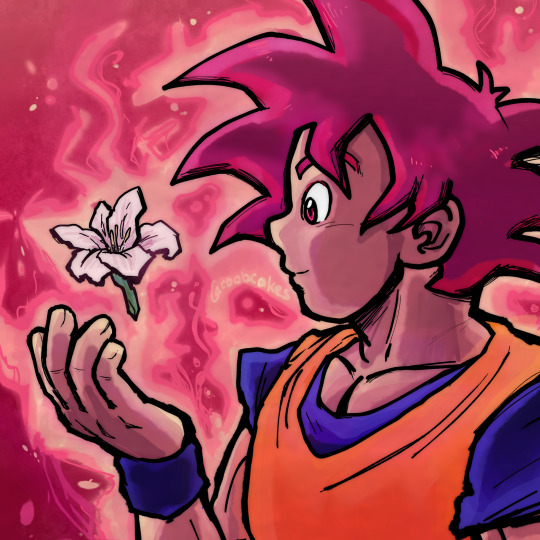


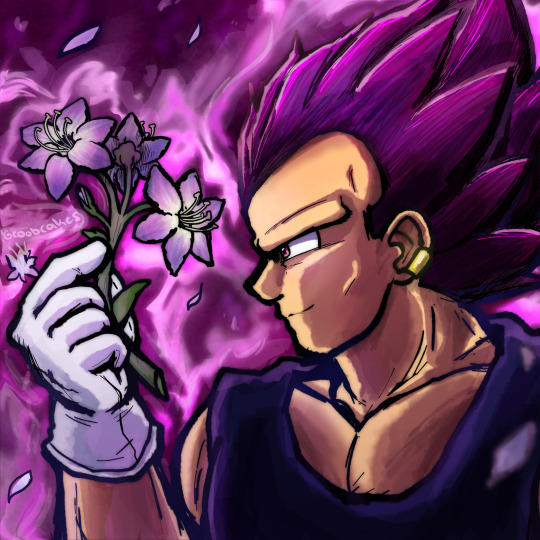
growth
#my art#illustration#dragonball#dragon ball#dragonball fanart#Vegeta#son goku#Goku#Vegeta db#dbz#dbs#Dragonball super#dragon ball super#ultra instinct#ultra ego#super Saiyan god#ssgss#super saiyan blue#super Saiyan god blue
178 notes
·
View notes
Text
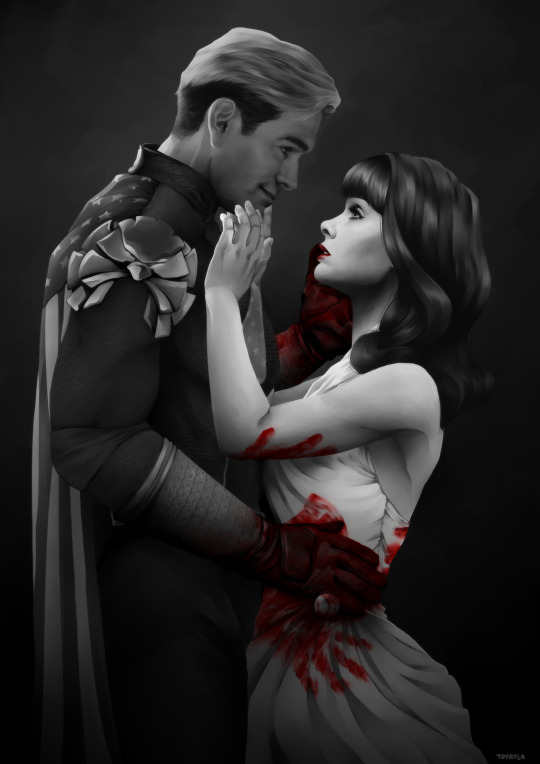
Homelander & Yulia "Empress" Bellam.
art for my planned homelander x oc fic,
The Hand You Wanna Hold is a Weapon. 🖤
( art by Toyryla )
#i'm so nervous about posting this bc i'm super skittish when it comes to oc content but!!! look at them!!!!!!!!!!!!!#yulia is super special to me. fun fact: her powers are based on my real life experiences with phantom pain#anyways i have been wanting to write a fic about these two and i had a pretty major breakthrough on it this weekend#so it's gonna be my next major oc project once eat your ego wraps up#which realistically has about 3 chapters left#homelander x oc#canon x oc#homelander fanart#yulia bellam
148 notes
·
View notes
Photo

work it!
#danganronpa#sdr2#sdr2 kazuichi#drv3 miu#drv3#super danganronpa goodbye despair#super danganronpa 2#ndrv3#ndrv3 miu#miu iruma#kazuichi souda#not really ship but tag as whatever#metukikart#chiaki namani#chihiro fujisaki#alter ego
1K notes
·
View notes
Text


Ultra ego and Ultra Instinct
#dragon ball super#dbs#dragon ball#dragon ball z#dragon ball super fanart#dbs fanart#vegeta#goku#ultra instinct#ultra ego#goku ultra instinct#vegeta ultra ego#fanart#my art#art#artist on tumblr
122 notes
·
View notes
Text

Same thing, new era
#anime#manga panel#dragon ball super#dragon ball z#dragon ball z kai#akira 1988#akira toriyama#dragon ball#son goku#prince vegeta#son gohan#beast gohan#ultra instinct#ultra ego
72 notes
·
View notes